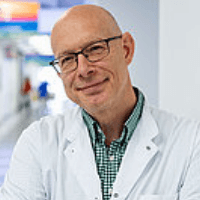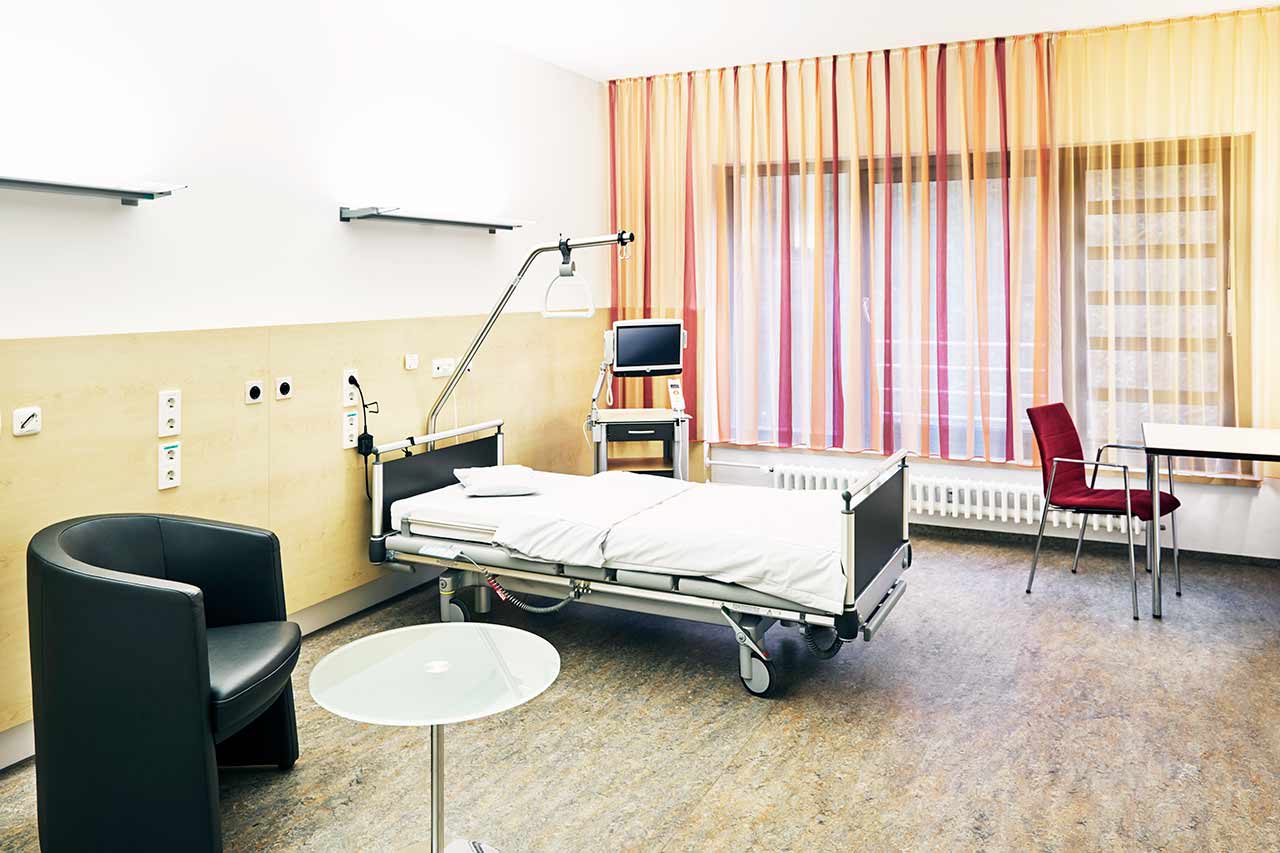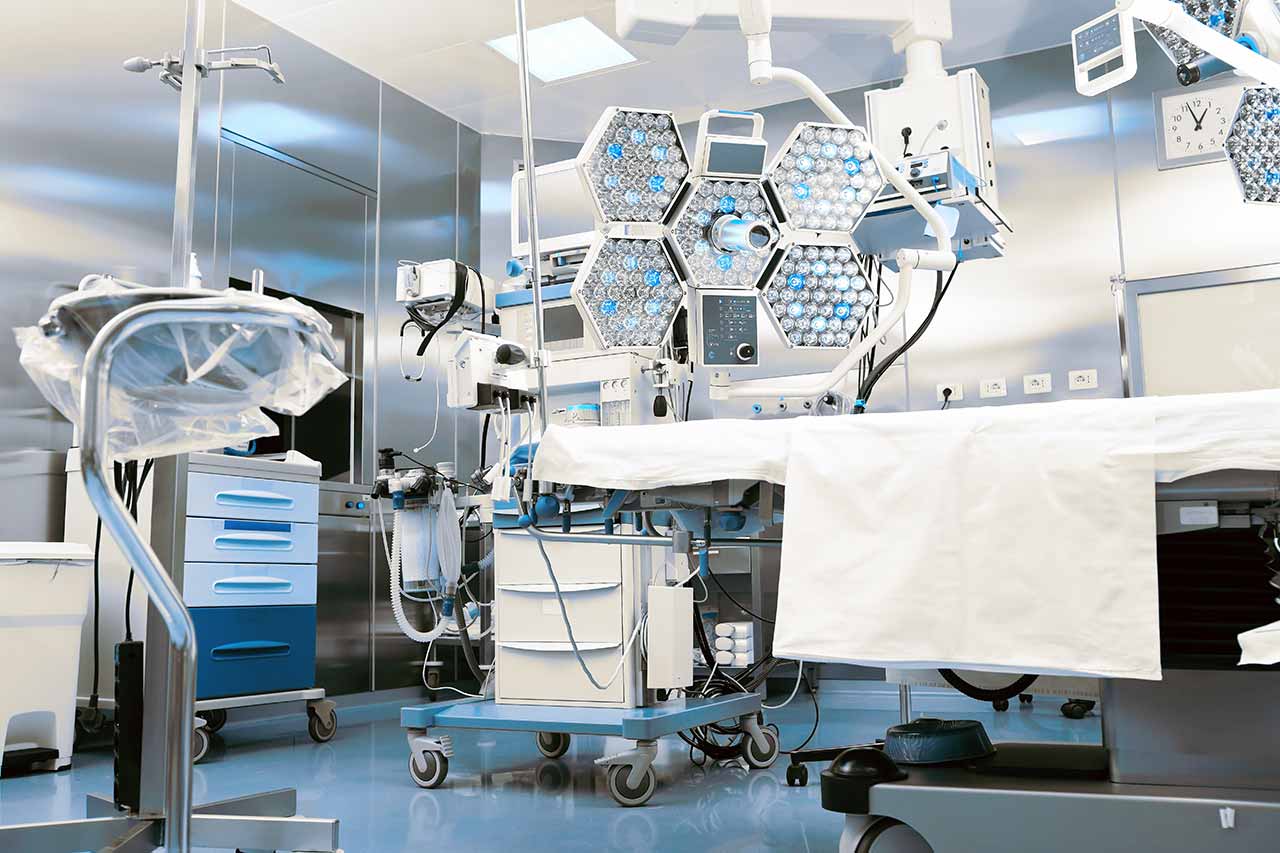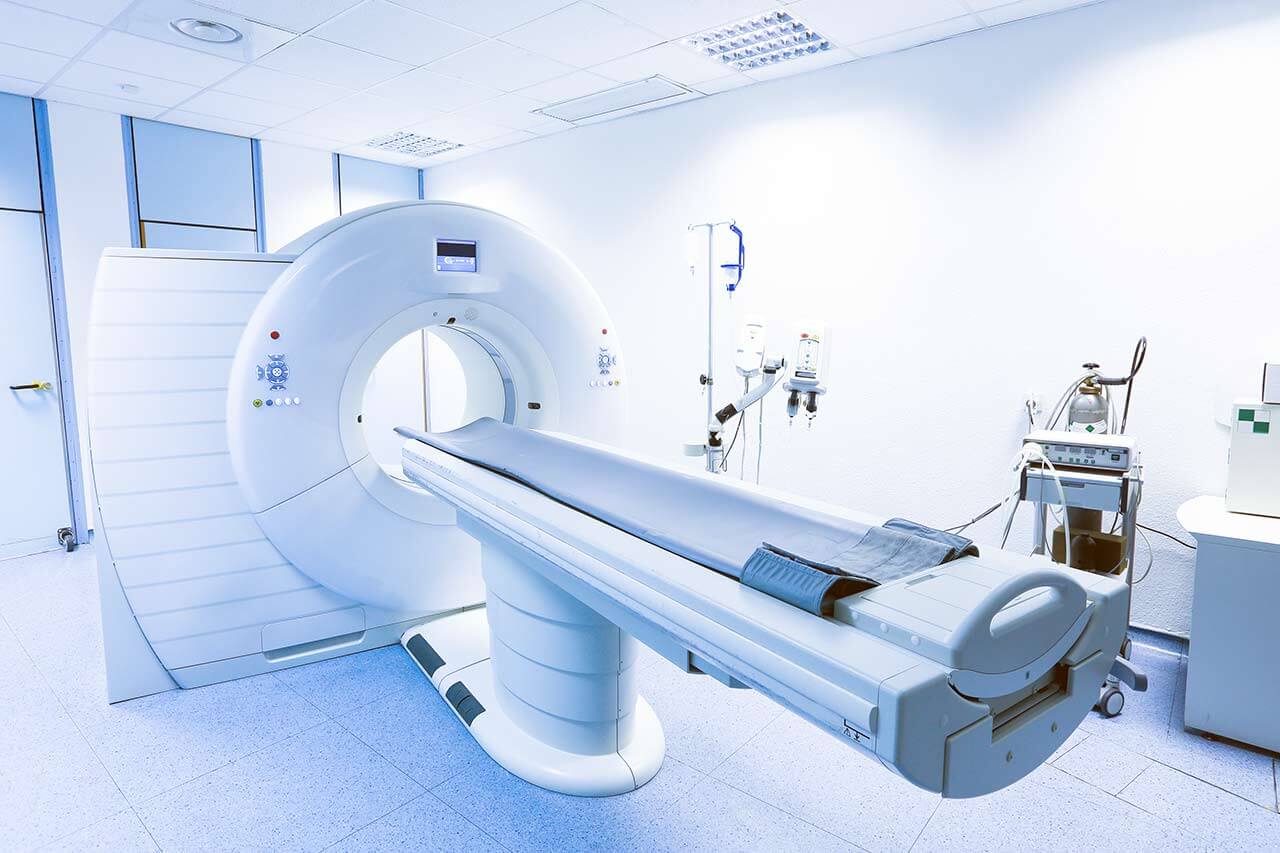
The program includes:
- Initial presentation in the clinic
- clinical history taking
- review of medical records
- physical examination
- laboratory tests:
- complete blood count
- inflammation indicators (CRP, ESR)
- indicators of blood coagulation
- tumor markers
- blood gas analysis
- chest x-ray
- high-resolution computed tomography (HRCT)
- MRI scan of chest (on indication 1200 €)
- pulmonary function test
- biopsy of lymph node with histological examination (on indication 2500 €)
- nursing services
- consultation of related specialists
- consultation of the chief physician and all leading experts
- development of individual treatment plan
- written statement
Required documents
- Medical records
- Chest MRI/CT scan (if available)
Service
You may also book:
 BookingHealth Price from:
BookingHealth Price from:
About the department
The Department of Adult and Pediatric Thoracic Surgery at the Hospital Kassel provides the highly accurate diagnostics and effective surgical treatment of diseases of the lungs, mediastinum and other thoracic organs. Patient care is provided in close cooperation with doctors from the Department of Diagnostic and Interventional Pulmonology. The primary focus of the medical facility is on the treatment of lung cancer and cancer of other thoracic organs, therefore, oncologists, chemotherapists, radiation therapists, radiologists and other specialists are involved in the therapeutic process. Thus, patients receive comprehensive treatment based on the expert knowledge and clinical experience of doctors from the related fields. The department admits not only adults, but also young patients. The key focus in the field of pediatric thoracic surgery is on the correction of pectus carinatum and pectus excavatum. Using only modern and the most effective surgical techniques, the department keeps pace with medical innovations. The medical facility is the only one in the region where thoracic surgeons successfully use an advanced surgical endoscopic technique – single-port video-assisted thoracoscopic surgery (VATS). The department is headed by Dr. med. Sebastian Kellner.
The department's surgeons most often perform surgery to treat lung cancer, mediastinal tumors and tumors of other thoracic organs. Whenever possible, the surgical treatment is performed using sparing surgical techniques (VATS), which allow the doctors to avoid chest opening and injury to the neighboring healthy tissues. When performing video-assisted thoracoscopic interventions, the surgeon makes only a few small skin incisions, through which he inserts special miniature instruments and a small video camera to transmit the image of the operating field on a large screen. The department also uses VATS for partial lobectomy (removal of a lobe of the lung). In addition, the department's team of thoracic surgeons has successful experience in resecting a large number of lung metastases using an innovative laser device. Cancer surgery is always complemented by chemotherapy and/or radiation therapy to completely destroy cancer cells.
An equally important field of the department's clinical activities is the treatment of inflammatory diseases of the lungs, mediastinum and pleura – lung abscess, mediastinitis, acute and chronic pleural empyema. At the early stages of the inflammatory process, the specialists prefer sparing surgery (thoracoscopy). If the inflammation progresses, the surgeons have to resort to open surgery with chest opening (thoracotomy). The department's doctors have excellent qualifications in both thoracoscopy and thoracotomy, and therefore they provide patients with high-quality and effective surgical treatment in clinical cases of any severity.
The department's team of thoracic surgeons focuses on children with congenital thoracic deformities (pectus excavatum and pectus carinatum). The congenital defects not only negatively affect the functioning of the lungs and heart, but also cause psychological complexes in the child, which become the cause of low self-esteem. The department's specialists recommend surgery to correct thoracic deformities at the age of 13-17 years. For this purpose, the department uses sparing endoscopic Nuss procedure. The first stage of the operation is the correction of the irregular shape of the thorax, after which the surgeons fix the chest wall using special metal brackets, which are removed 2-3 years after the corrective intervention. All surgical manipulations are performed through small skin incisions, which excludes a traumatic chest opening.
The department's main clinical focuses include:
- Diagnostics
- Flexible and rigid bronchoscopy
- Tracheoscopy
- Thoracic ultrasound
- Combined positron emission tomography and computed tomography (in collaboration with the Department of Diagnostic and Interventional Radiology, Nuclear Medicine)
- Computed tomography (in collaboration with the Department of Diagnostic and Interventional Radiology, Nuclear Medicine)
- Magnetic resonance imaging (in collaboration with the Department of Diagnostic and Interventional Radiology, Nuclear Medicine)
- Ultrasound- and CT-guided punch biopsy
- Diagnostic thoracoscopy
- Diagnostic mediastinoscopy
- Parasternal mediastinotomy
- Treatment
- Surgery to resect benign and malignant tumors of the lungs, pleura and other thoracic organs
- Surgery to treat inflammatory diseases of the lungs, mediastinum and pleura (lung abscess, mediastinitis, acute and chronic pleural empyema)
- Laser removal of lung metastases, including a large number of metastases
- Surgery to treat interstitial lung diseases (pneumothorax, pulmonary emphysema)
- Surgery to treat diaphragm paralysis
- Surgery to correct pectus carinatum and pectus excavatum in adults and children
- Surgery to resect mediastinal tumors (for example, neuromas, thymomas, cysts)
- Surgery to treat tracheal stenosis, edema and injuries
- Thymectomy (surgical removal of the thymus gland)
- Minimally invasive interventions on the lungs and other thoracic organs
- Nuss procedure for the correction of pectus excavatum and pectus carinatum
- Surgery to remove mediastinal tumors
- Partial lobectomy (VATS)
- Thoracoscopic sympathectomy to treat hyperhidrosis
- Single-port lobectomy (VATS)
- Other diagnostic and treatment methods
Photo of the doctor: (c) Klinikum Kassel
About hospital
The Hospital Kassel is a progressive medical facility with a huge medical team, which provides high-quality medical services in all branches of modern medicine. The hospital is part of the regional medical Gesundheit Nordhessen Holding, which unites 5 top-class medical centers, including specialized rehabilitation clinics. With 1,281 beds, the hospital is known as the largest medical complex in the federal state of Hesse. The hospital has 32 specialized departments with highly qualified doctors and specially trained nursing staff in each department. The team of 3,200 employees takes care of the health of patients. The main value for each employee is the patient's health. The professional skills of the medical staff in combination with state-of-the-art medical and technical equipment of the hospital provide excellent opportunities for the treatment of patients with pathologies of any severity.
The hospital provides treatment to over 55,000 inpatients and about 140,000 outpatients every year. Medical care is provided to both German citizens and many patients from foreign countries. Such high rates are the evidence of excellent quality of medical services and the high credit of patients' trust.
The hospital has created a wonderful atmosphere, which contributes to the rapid recovery of patients. All diagnostic and therapeutic rooms, operating rooms, as well as patient rooms are designed taking into account modern standards of European medicine in order to ensure maximum comfort of each patient. All employees working in the hospital provide the patient with understanding and respect, as well as support him in every possible way during the entire therapeutic process.
The hospital successfully implements a quality management system. It uses its own quality management system implemented by the medical Gesundheit Nordhessen Holding, as well as the IQM (Initiative Qualitätsmedizin) monitoring system. As part of healthcare quality management, the hospital annually clearly provides reports on its clinical activities, the success of diagnostics, treatment, level of patient care, etc. Thus, the hospital stands for maximum openness in its work and makes every effort to maintain the highest level of quality of medical care.
Photo: (с) depositphotos
Accommodation in hospital
Patients rooms
The patients of the Hospital Kassel live in comfortable single, double and triple rooms. The patient rooms are made in a modern design and pastel colors. A standard patient room includes an automatically adjustable bed, a bedside table, a wardrobe, a table and chairs for receiving visitors, a TV and a telephone. The patient rooms have Wi-Fi. Each room has an ensuite bathroom with shower and toilet.
The hospital also offers enhanced-comfort patient rooms. Most of these rooms have a balcony. The bathroom additionally includes a hairdryer, towels and toiletries.
Meals and Menus
The patient and the accompanying person are offered tasty and balanced three meals a day. If for some reason you do not eat all foods, you will be offered an individual menu. Please inform the medical staff about your food preferences prior to treatment. The patients staying in enhanced-comfort rooms are provided with an individual menu every day.
The hospital also has several cafes where one can have a cup of tea or coffee, taste delicious pastries, salads, main hot dishes, pizza, etc.
Further details
Standard rooms include:
Religion
The religious services are available upon request.
Accompanying person
During the inpatient program, the accompanying person can live with the patient in a patient room or a hotel of his choice. Our managers will help you choose the most suitable option.
Hotel
During an outpatient program, the patient can stay at the hotel of his choice. Our managers will help you choose the most suitable option.





